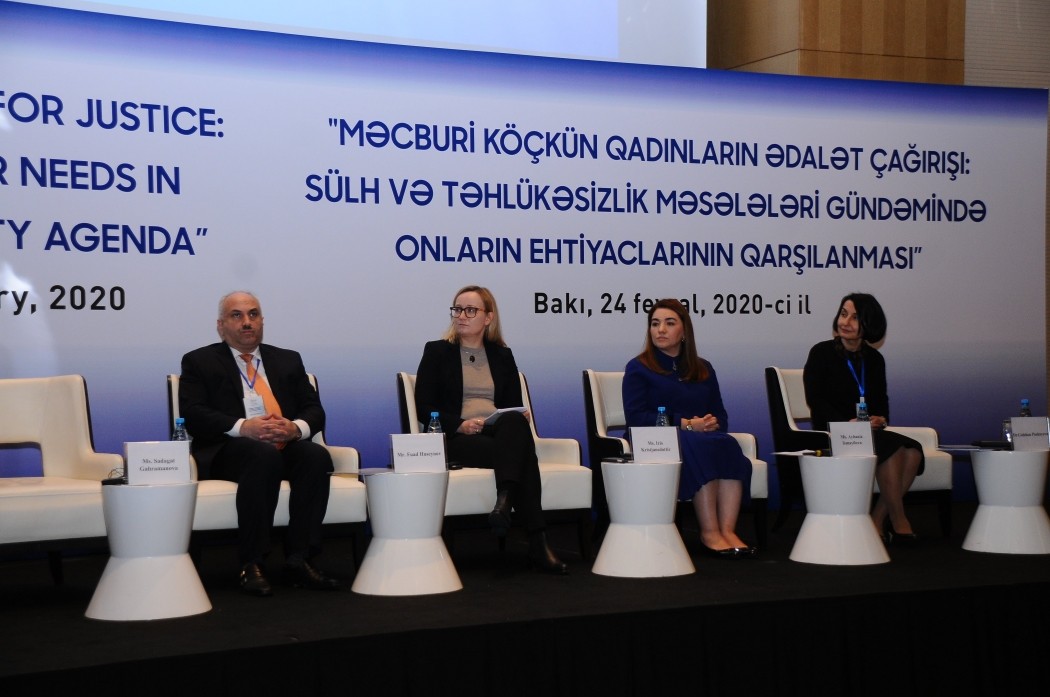The conference was organized in the run up to the commemoration of the 28th anniversary of Khojaly massacre of 26 February, 1992 and the 20th anniversary of the UN Security Council's Resolution 1325 on Women, Peace, and Security. Hikmet Hajiyev, Assistant to the President of Azerbaijan, Head of the Foreign Policy Department of the Presidential Administration, said that historically, Azerbaijani women have always been very active in peace and security issues. He added that during the armed conflicts, civilian groups, particularly women and children, are the most vulnerable. Speaking on the UN Security Council Resolution 1325, Hikmat Hajiyev noted that this document grants an equal role for women in peacebuilding and conflict prevention. National Action Plan has been developed in order to implement the resolution and is currently underway with government agencies to bring it to the final stage”.
Farid Shafiyev, Chairman of the Board of Air Center, emphasized the importance of such events in Azerbaijan. According to him, in Armenia-Azerbaijan conflict, Azerbaijan acts from the position of defense. “But the victim of this conflict is Azerbaijan. We need to redefine our position by discussing such issues and bringing our position to the international community”.
Later, the UN Resident Coordinator in Azerbaijan Ghulam Isaczai said that “UN Security Council Resolution 1325 reflected the role of women in conflict prevention and peacebuilding. According to her, women's activities in this area will be a guarantee of lasting peace. We also call on Azerbaijan to adopt the Action Plan on UN Security Council Resolution 1325”.
Tural Ganjaliyev, Head of the Azerbaijani community of the Nagorno-Karabakh region, said “violence against women in the conflict is unacceptable. We witness the peaceful calls of Azerbaijani women from Nagorno-Karabakh. We expect our women to actively participate in the reconstruction work after the occupation is over. I am sure that Azerbaijani women will also contribute to the liberation of our lands”.
The panel discussions on "Promoting Women's Rights and Participation in Conflict-Affected Settings" and "Human Faces of Conflict" followed. During the second panel discussion, women who suffered directly from the Armenia-Azerbaijan conflict shared their life stories.




